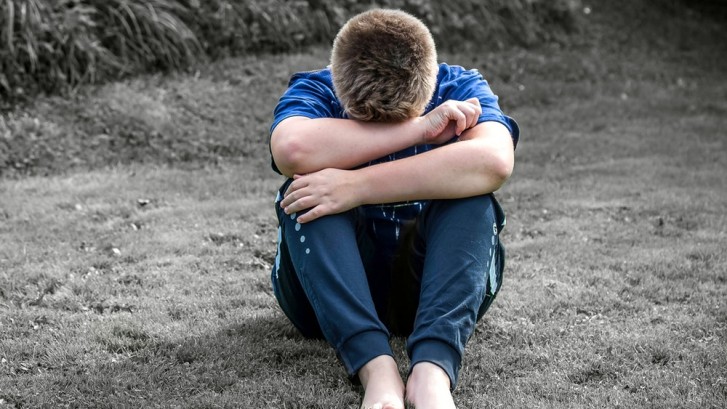Most of us live in a culture that glorifies busyness. We stay up late to get things done, then we get up early so we can get to work on time. We try not to think about how little sleep we're getting, how much coffee we're drinking, and how tired we feel. After all, thinking about it just makes us feel worse, and we feel like we can't do anything to change the situation. We are just going to have to learn to function while sleep deprived.
Sleep deprivation, at its most basic, means not getting enough sleep. How much sleep you need will depend on who you are and how much you do in a day, but most people need between 7 and 9 hours every night in order to function well the next day. Miss out on some sleep for just a few days, and you will notice its effects.
Symptoms of Sleep Deprivation
Some symptoms of sleep deprivation are easy to spot. People who are yawning, who are having trouble staying awake in classes or in meetings, or who are always particularly moody or emotionally touchy are, quite possibly, sleep deprived.
However, there are other symptoms that can be associated with sleep deprivation, too. Sleep deprived people can be clumsy, can have trouble making decisions or consistently make poor decisions, and they may always be hungry. They may be accident prone, in their vehicles or otherwise, and they may get sick easily or have trouble getting better when they do fall ill.
All of this happens because the human body needs sleep. We are made to sleep and, when we don't, it has consequences for how (and how well) the body functions.
Effects of Sleep Deprivation
The abovementioned symptoms occur because of the effects of sleep deprivation on the human body. Here are just a few health issues that seem to be caused, at least in part, by a lack of sleep.
Immune System Problems
During sleep, the body produces cytokines and other substances that fight infection. When we don't sleep enough, we don't have enough time to produce all of these that we need. Then, when something invades the body, we can't fight it off as effectively.
Cytokines also help fight inflammation in the body, which has been tied to heart disease, autoimmune diseases, and more. When the body isn't producing enough of these substances, inflammation rises and the chances of developing these related conditions rise, too.
Diabetes
People who only sleep for a few hours every night don't process glucose as effectively as those who sleep for at least 8 hours. Researchers don't know exactly why this happens, but the end result is that those who only sleep a few hours are significantly more likely to develop Type 2 Diabetes.
In addition, once they wake up, people who are sleep deprived release more insulin after they eat. This messes with their blood sugar levels, causes them to store more fat and also heightens their risk of developing Type 2 Diabetes.
Psychological Health
When your sleep, your brain rests and recovers, processing information and storing memories. When it doesn't get a chance to do these things, it is required to function while exhausted. Thus, sleep deprivation causes you to be impatient, to have wild mood swings, and to struggle to be creative or solve problems well.
Sleep deprivation also correlates with higher levels of:
- Depression
- Suicidal thoughts
- Struggles with attention and focus
- Paranoia
- Impulsive behavior
Hormonal Health
Some hormones depend on sleep for their production and release. Testosterone is one of these. You need at least 3 consecutive hours of sleep to make enough. Since both men and women need testosterone to achieve hormonal balance, sleep deprivation can throw this off.
Children and adolescents release more human growth hormone when they sleep well. If they aren't getting enough rest, it's possible that their bodies won't grow and develop as is necessary for good human functioning.
Weight Struggles
In addition to releasing more insulin and being at risk for Type 2 Diabetes, both of which correlate positively with a higher than desired body weight, sleep deprivation causes people to eat more than they need. The body is trying to get the energy that it didn't get while asleep. However, it has to store these extra calories somewhere and this often makes losing weight much more difficult for people who are sleep deprived.
On top of these issues, people who are sleep deprived are more likely to make poor food choices. Their brains are tired, their impulse control is down, and so they are more likely to eat junk food than their well-rested friends.
Causes of Sleep Deprivation
At its most basic, sleep deprivation is caused by not getting enough sleep. Sometimes, we simply choose not to get enough sleep or to do other things rather than sleep. However, there are also conditions that can cause sleep deprivation, or at least make sleep more difficult. These include:
- Sleep apnea
- Restless Legs Syndrome
- Insomnia
- Narcolepsy
- Primary hypersomnia
If you have one of these conditions, talk to your doctor about how to get more sleep. If you consistently have trouble sleeping or you feel like you sleep enough but you're still tired, it may be worthwhile to get tested to see if you're struggling with one of these.
Sleep deprivation can also be caused by poor sleep hygiene. Sleep hygiene looks at the behavioral and environmental conditions under which you try to sleep. Some situations are better than others. Good sleep hygiene involves:
- Turning off screens at least an hour before bedtime.
- Making your bedroom as dark as possible.
- Making sure you have a comfortable, supportive mattress and pillow.
- Not napping too much during the day.
- Setting yourself up for good sleep with a relaxing bedtime routine.
- Going to bed and getting up at the same time every day.
If you struggle with sleep, you may try implementing some of these strategies and see if your rest improves.
Treatment of Sleep Deprivation
Improving your sleep hygiene, as outlined above, can help you sleep better. However, if you have a sleep disorder or one of the conditions mentioned above, you may need to find an effective treatment for that, too, before you can sleep well.
If you simply need to make more time for sleep, treatment involves moving the pieces of your schedule around until there's adequate time for sleep. You may have to eliminate some things or learn to use your time differently.
There are medications that can help you sleep, but these tend to have significant side effects. If nothing else works, it's definitely worth talking to your doctor about the pros and cons of these medications for your particular situation. If medicine is the only way to sleep better, you may need to consider taking it for a while.
Sleep deprivation is a major problem, but it is very treatable. We need to become a culture that values rest as much as we value work and efficiency. As more and more of us come to prioritize sleep in our own lives, this will slowly change. Be part of the revolution! Get more sleep today!



